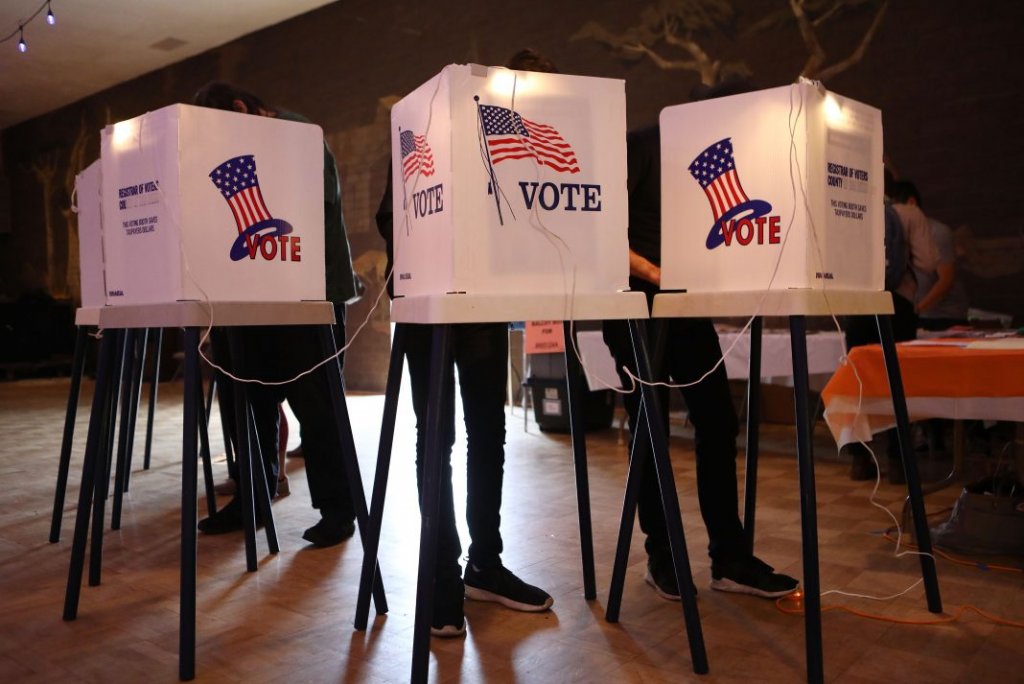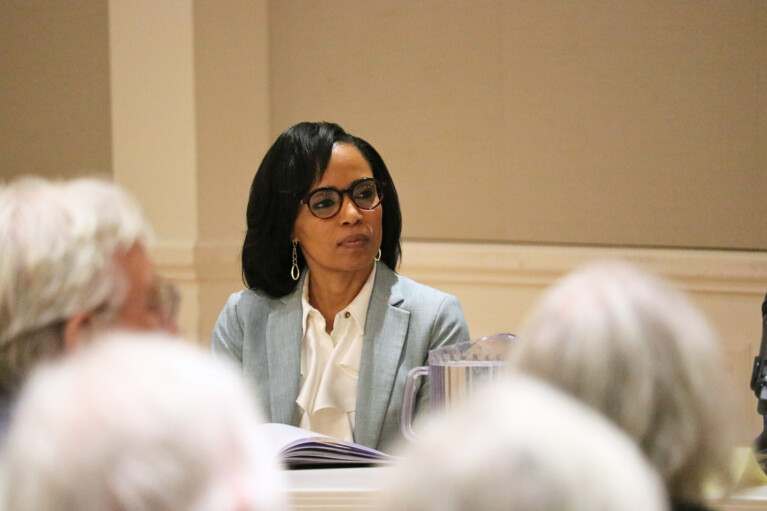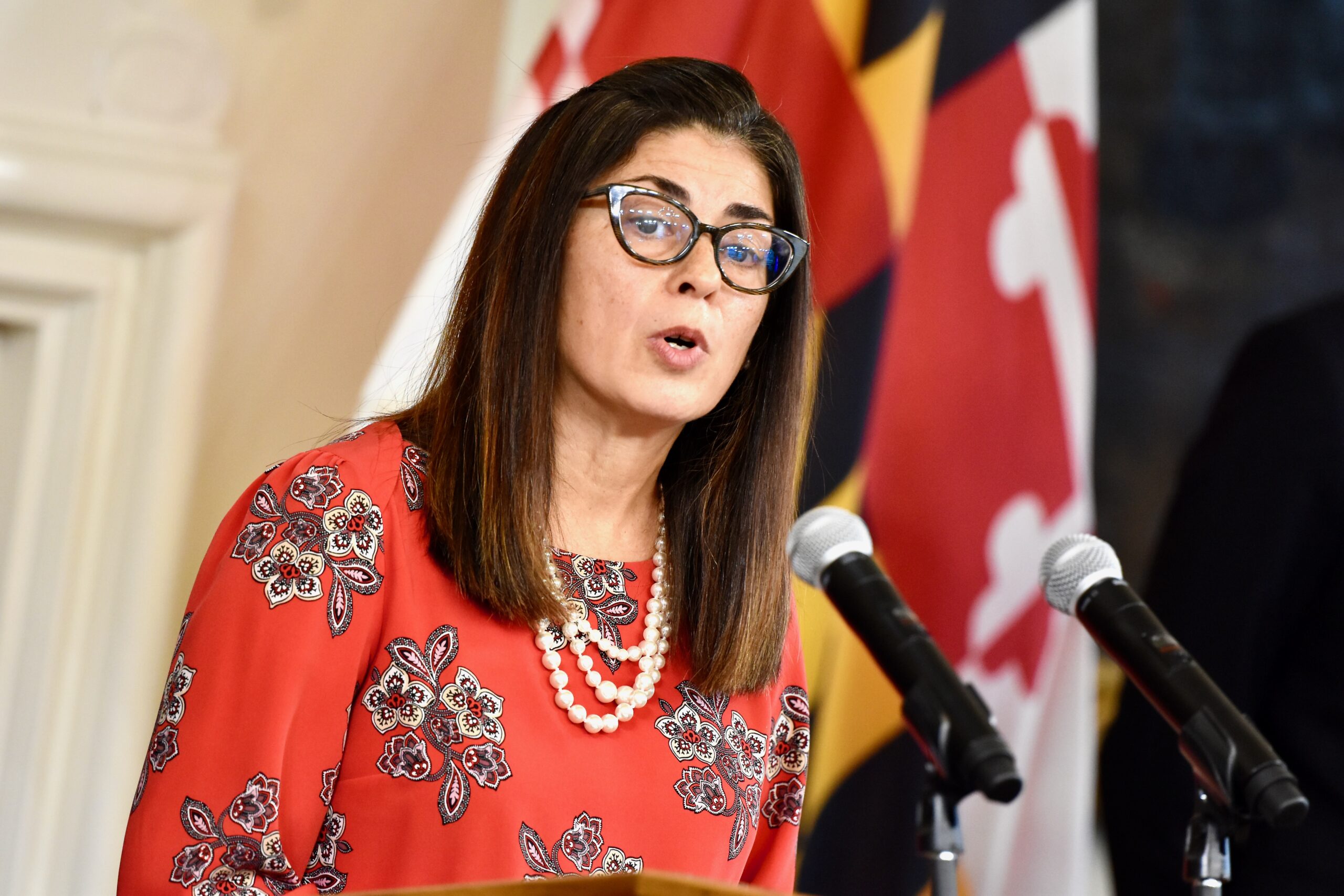Lawmakers Push Bill to Expand Polling Place Access at Colleges, Military Bases

Maryland lawmakers announced Wednesday that they plan to revamp and expand legislation to increase student voter turnout that faltered during the abbreviated 2020 legislative session.
House Majority Leader Eric G. Luedtke (D-Montgomery) and Sen. Sarah K. Elfreth (D-Anne Arundel) unveiled the Student and Military Voter Empowerment Act in a virtual press conference.
Elfreth said she hopes last year’s unusual election cycle, which saw Maryland officials undertake an unprecedented voter education effort, will underscore the legislation’s importance.
“The policy window is now kind of more open,” Luedtke said.
Luedtke and Elfreth are both educators: Elfreth is an adjunct professor at Towson University, and Luedtke is an associate clinical professor at the University of Maryland.
If enacted, the bill would create formal processes for “large residential communities” like universities, military bases and senior communities to request on-site polling places. It would also require public higher education institutions to step up voter registration efforts on their campuses, and give college students excused absences to vote if they wouldn’t have time otherwise.
Both public and private higher education institutions would be required to create websites that link to voting information if the bill passes, and would have to report how many students are using those sites.
Military members would be allowed to register to vote online using their Department of Defense Common Access Cards if the bill passes. Luedtke noted that many military voters don’t serve near a post office or embassy, and can’t easily register to vote under Maryland’s current system.
Luedtke attempted a similar bill last year, but it was one of many that faltered amid an abbreviated session.
Last year’s bill was only aimed at addressing voter turnout amongst college students. Luedtke said he was encouraged by Del. Michael Griffith (R-Harford) to include provisions for overseas military and senior citizen voters in this year’s effort.
Griffith is the number two sponsor of the House version of the bill.
An increasingly large portion of the United States electorate is made up of voters under the age of 29, many of whom are students or in the military, said Lauren Wyatt, the advocacy director of the nonpartisan voting rights organization Black Girls Vote.
“With Maryland being the home to many world-class institutions of higher education, it is important that students on these campuses are able to easily engage in the Democratic process,” Wyatt said.
The bill has support from student and military advocates, who say the legislation would increase voter turnout. Patrick Guibao, the vice president and legislative director for the Maryland Military Coalition, said the bill would benefit Maryland’s overseas service members.
“Voter empowerment is citizen enrichment,” Guibao said.
Marylanders voted by mail in unprecedented numbers during statewide elections in 2020, and some voting rights advocates have since asked that legislators permanently expand mail-in voting. Luedtke said the Student and Military Voter Empowerment Act is mostly aimed at increasing voter participation and doesn’t expand mail-in voting.
Still, Luedtke said he expects legislation to address mail-in voting during the 2021 session. He said it will be a “banner year” for election bills and reforms.




 Creative Commons Attribution
Creative Commons Attribution